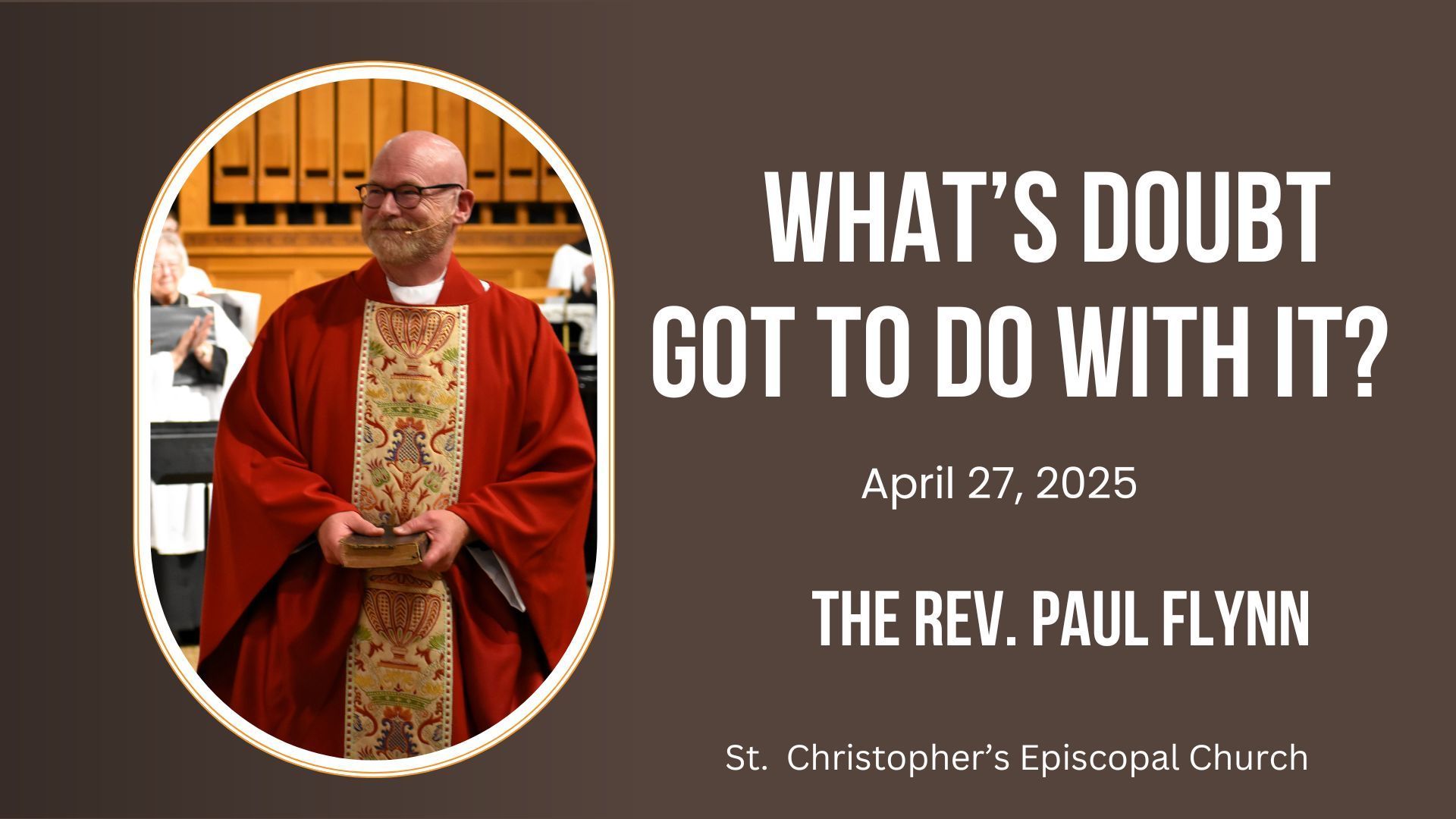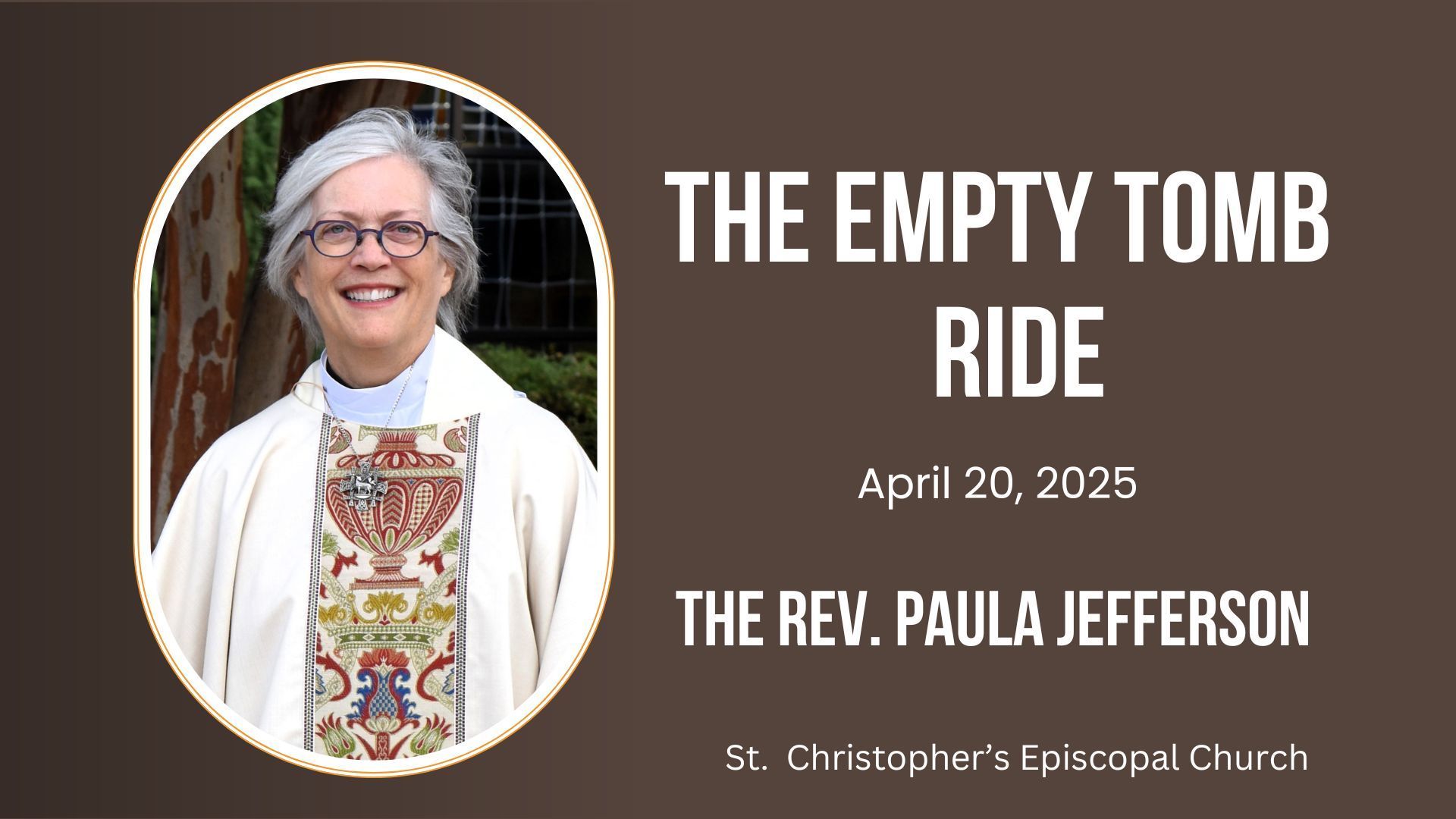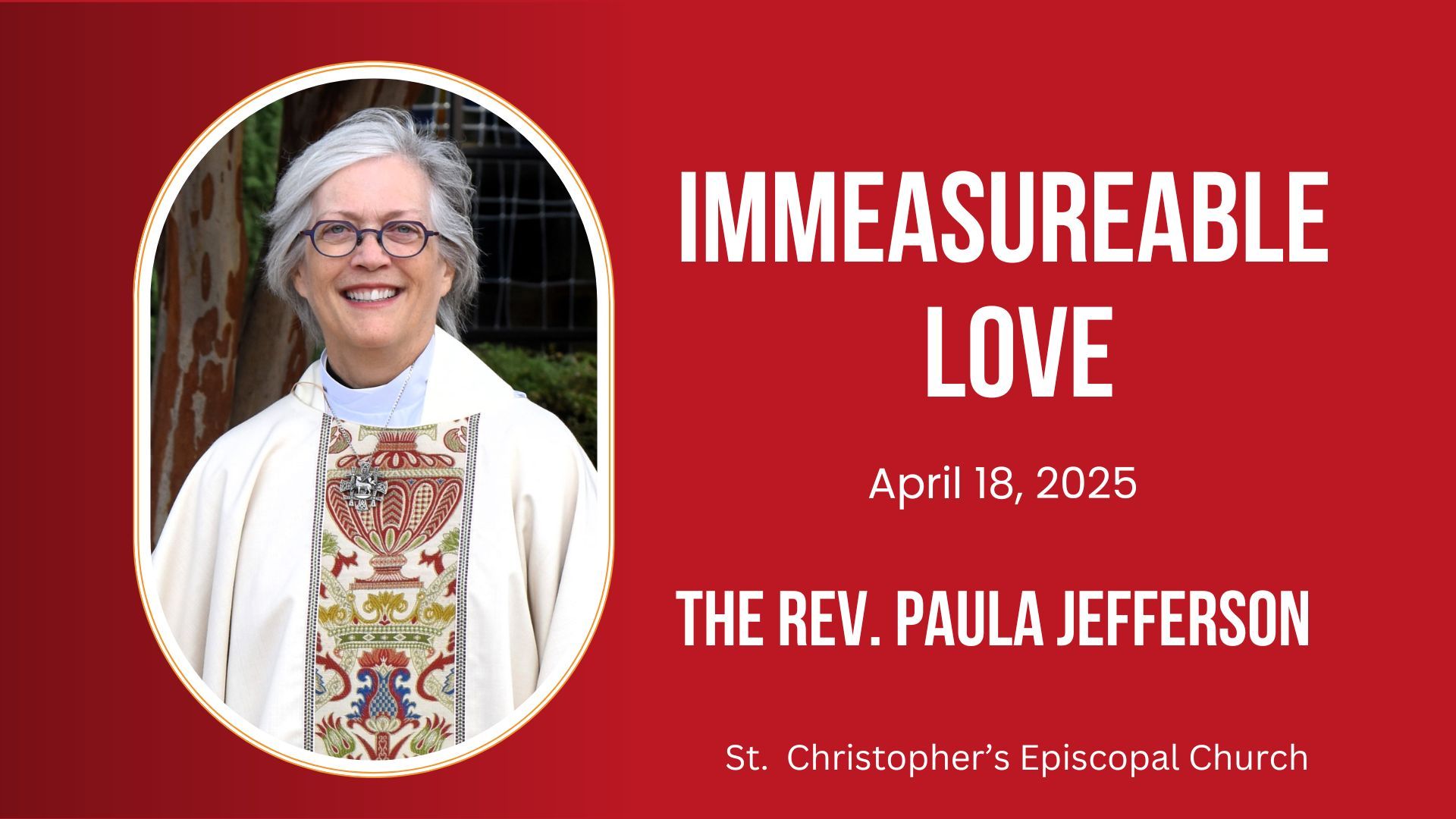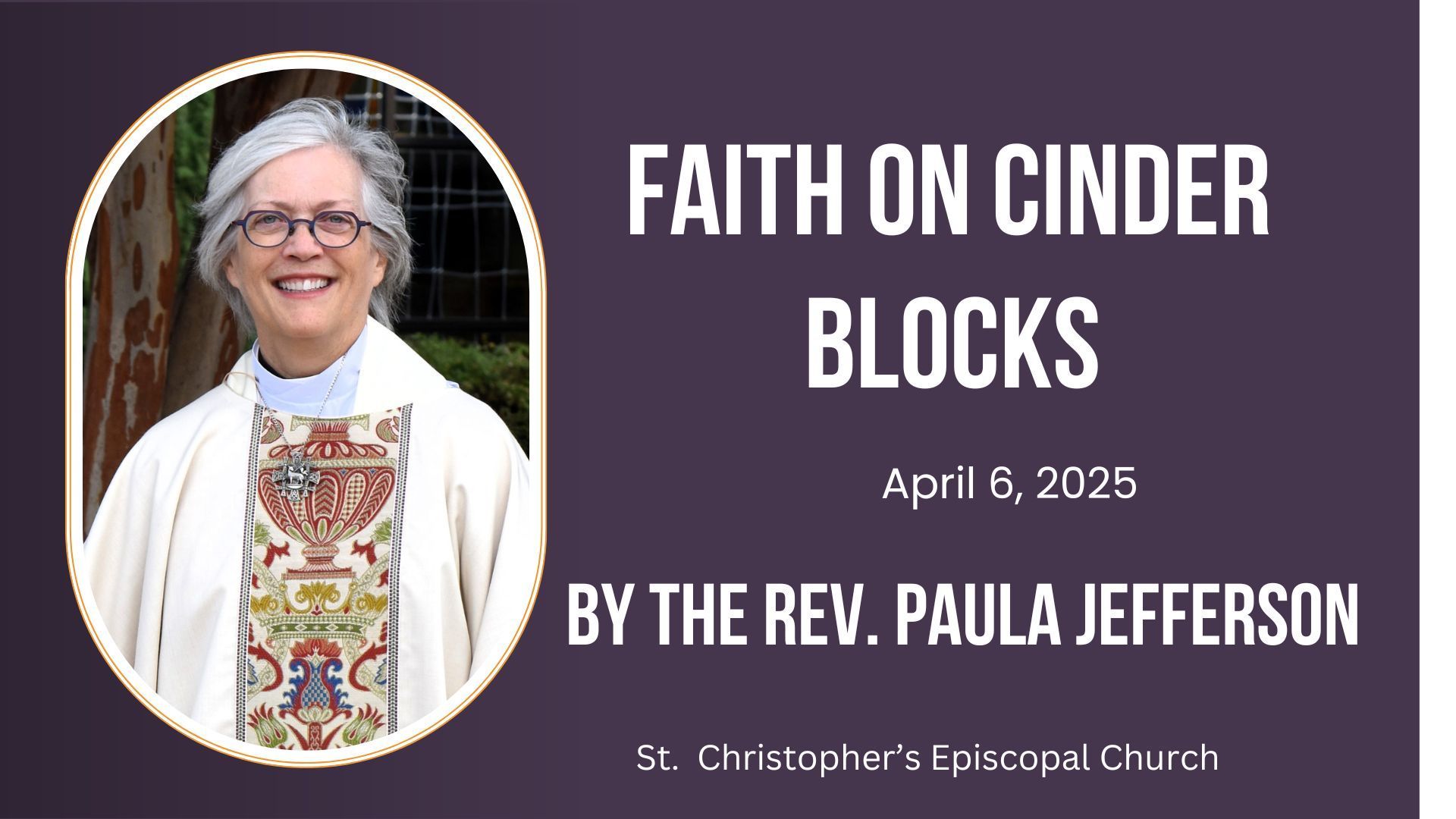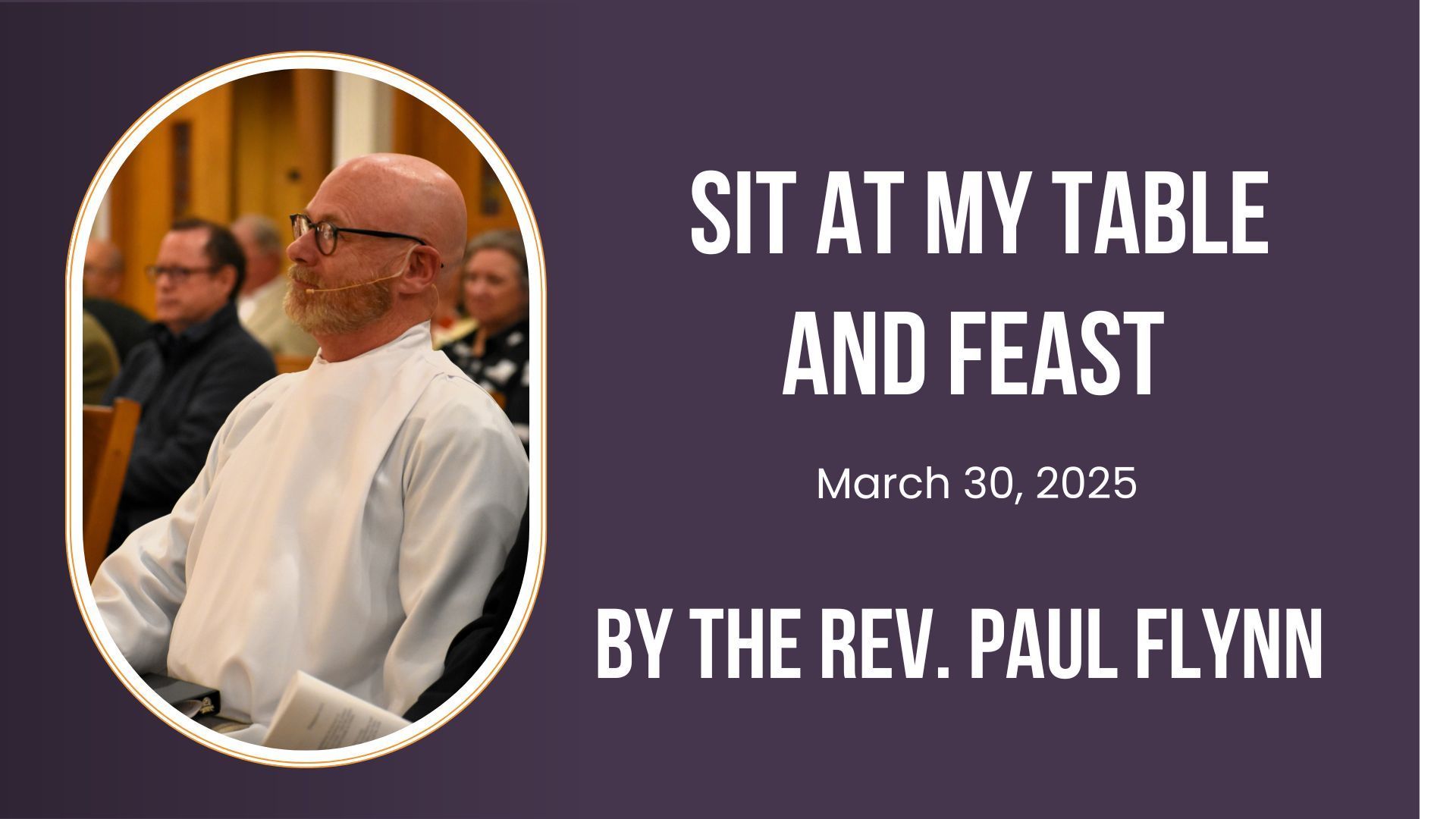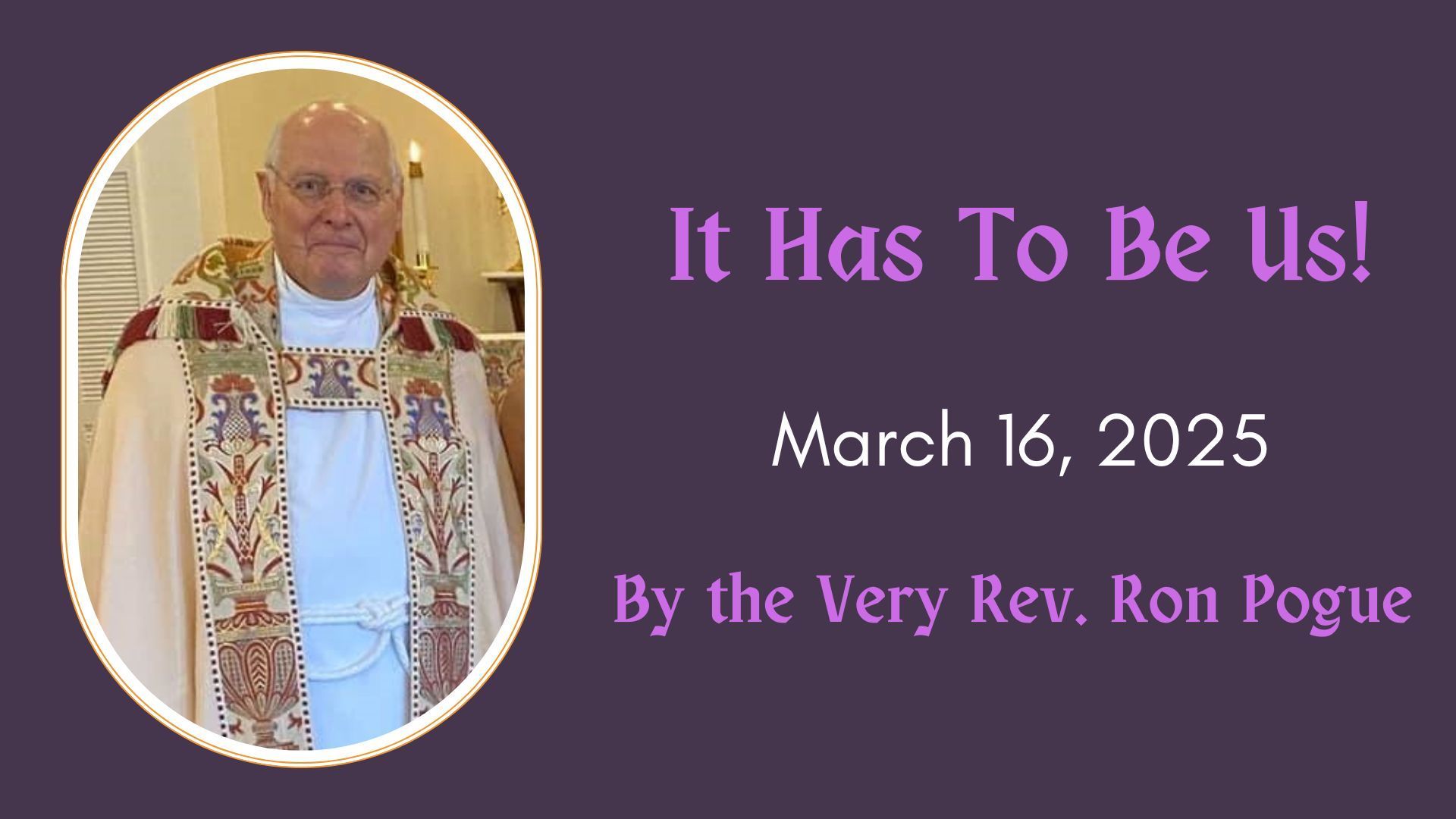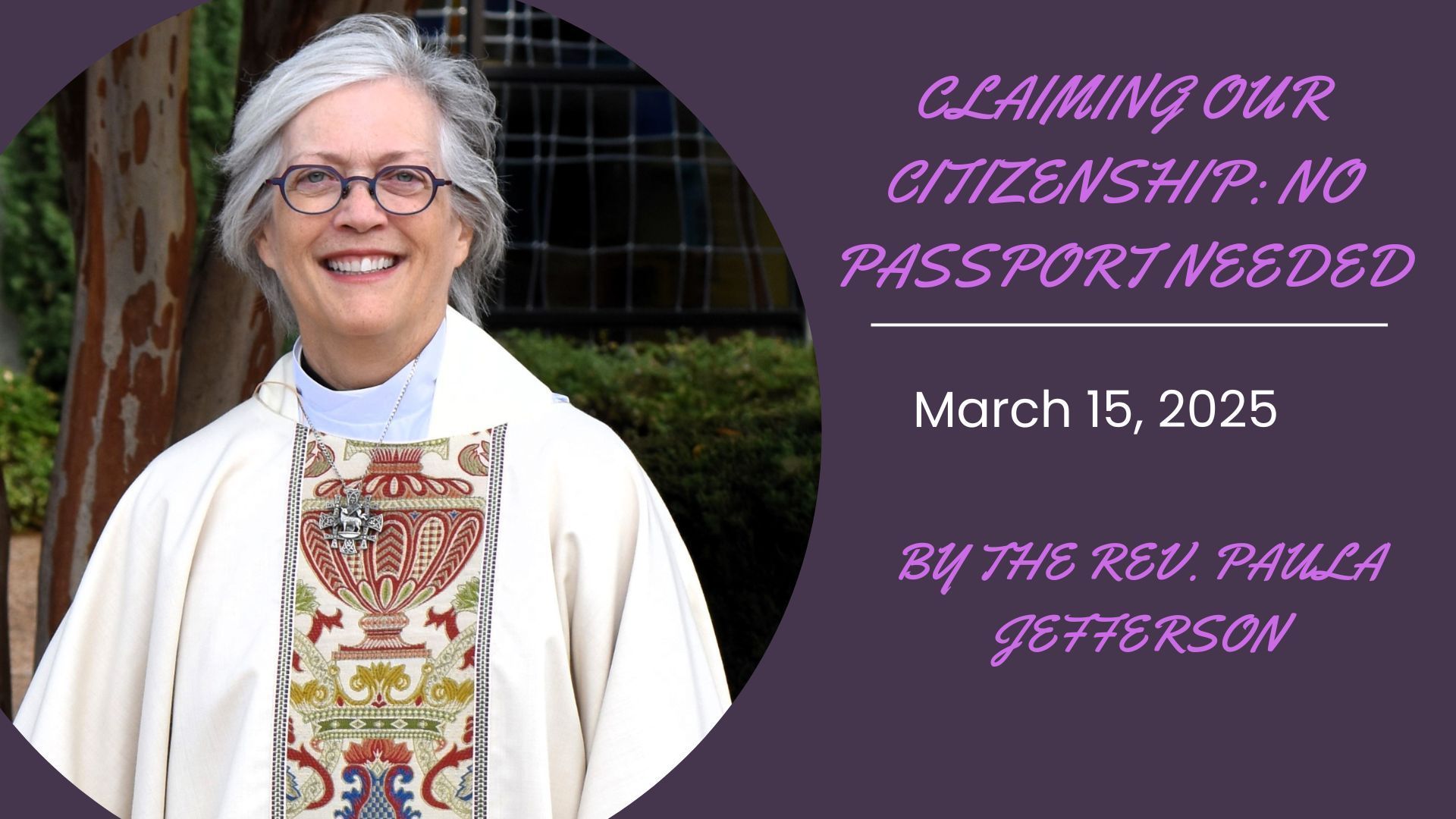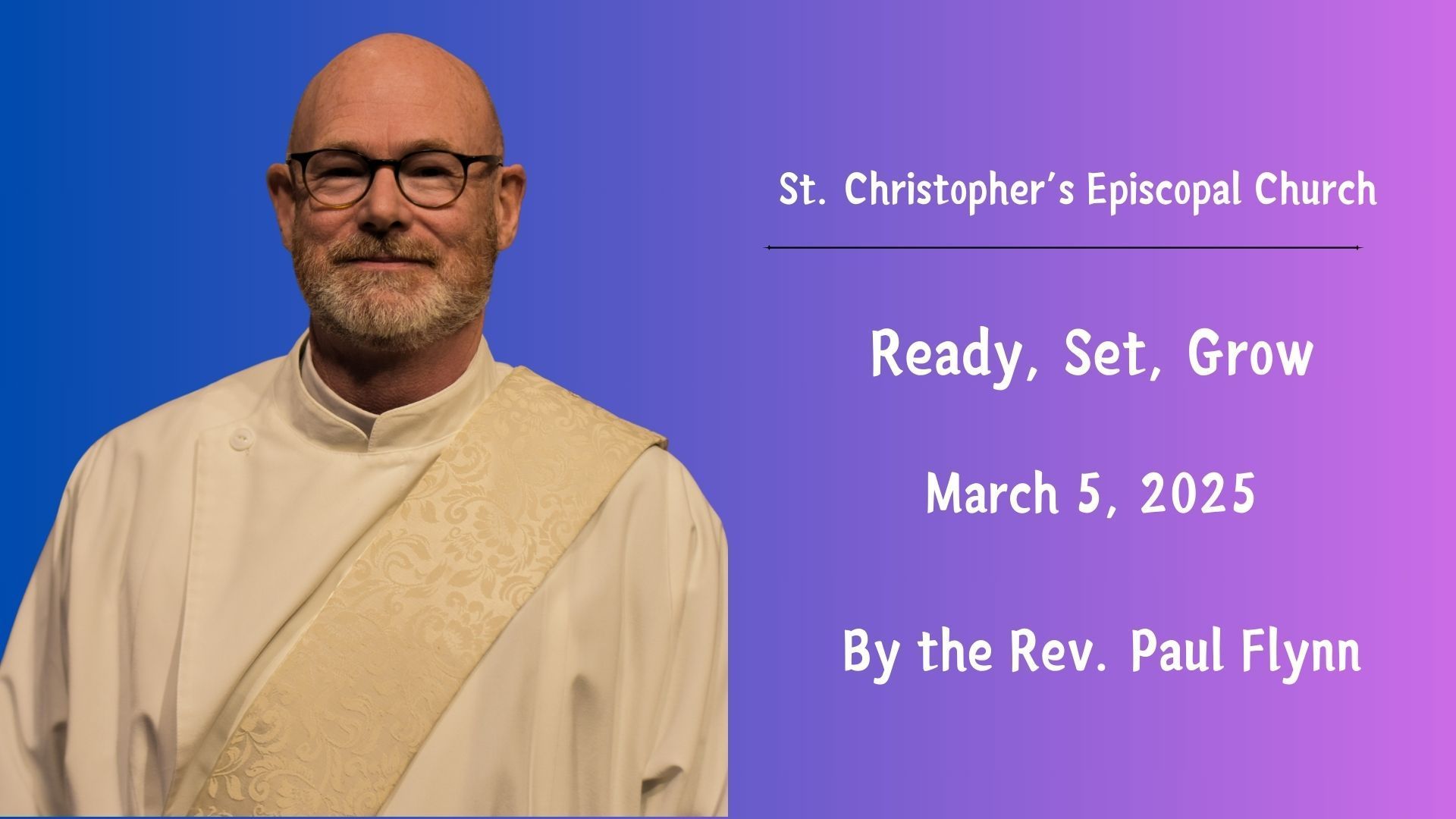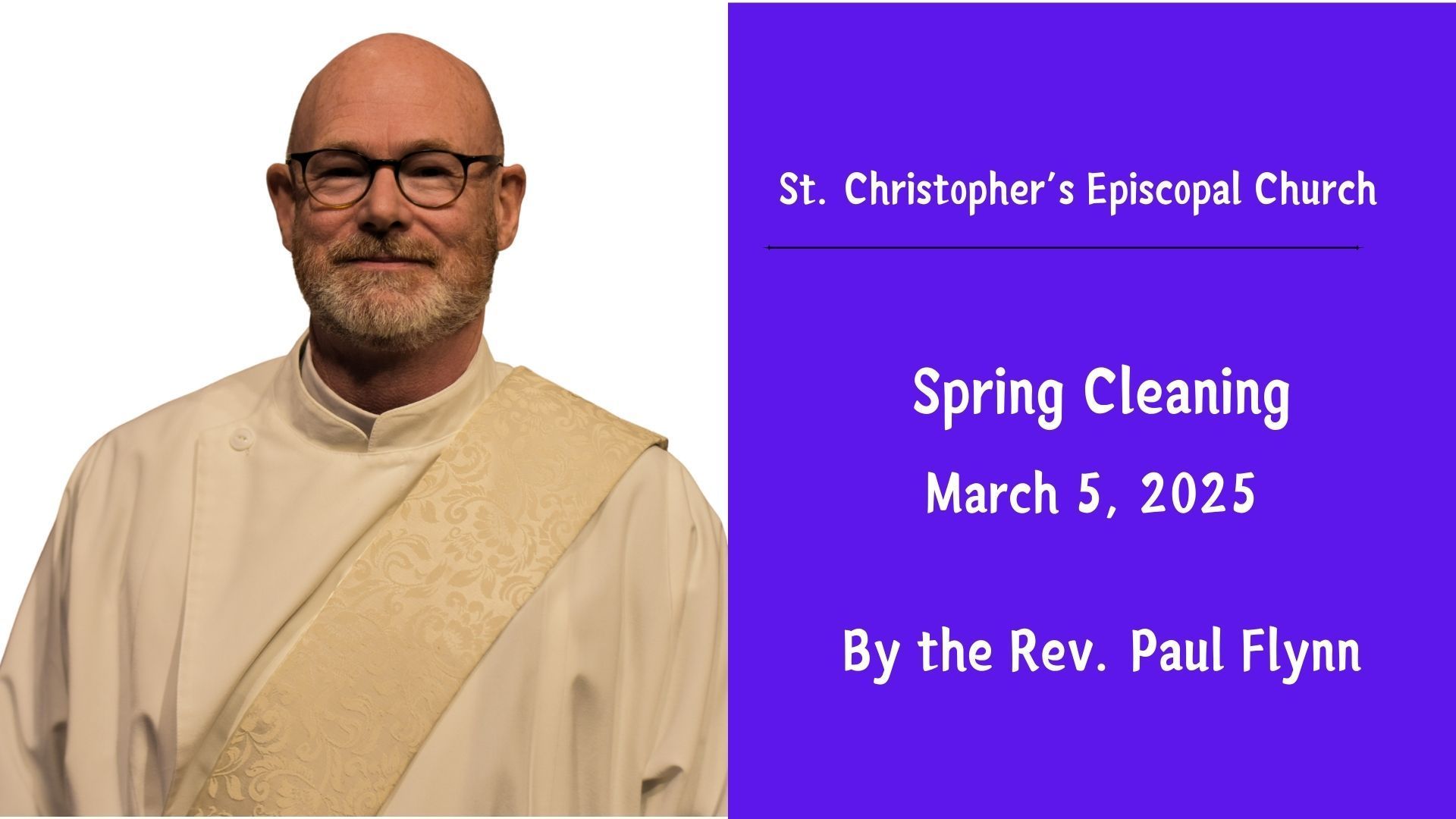In the name of God, Father, Son, and Holy Spirit. Amen.
So, I gotta tell ya, I’m really appreciating God’s wry sense of humor this morning.
When I was in seminary, I took a whole class on James. my professor, a Presbyterian and an expert on this short book, assured me that our work would be mostly academic. “You don’t actually preach on James much,” she said. “For you Episcopalians, it hardly comes up in the lectionary.”
So here we are with James two weeks in a row.
Last week, Rev. Paula led us through a reading from the book of James, powerfully reminding us that we have choices in these anxious political times about how to spend our time. We can listen to – or even participate in – the political rancor that holds our nation in its grip or we can refocus our citizenship’s attention on God’s realm and the work that God has given us to do.
Last week, the question posed in James’ Epistle was what?
This week, we have another reading from James that seeks, I think, to ask us why?
James is a difficult book for Protestants. Our beloved host, Martin Luther, hated the book of James. He called it an epistle of straw and opposed to the Gospel.
Protestants, after all, often fall squarely in the camp that all God requires of us is faith.
James’ view is more nuanced. Believing is an essential and necessary aspect of faith, but without the works that arise as a natural consequence of our relationship with Christ, that faith is dead.
In other words, faith is not a noun. It is an action verb.
The question is what kind of action.
The wrong kind of action leads to dissension and quarreling
What is the source of your quarrels, he asks, but the cravings at war within you.
Cravings is an interesting word. We might be tempted to conclude that cravings means just what it means in English: our desires
Certainly, I think that is part of what James is saying. If you are focused more on your appetites, then you are less likely to care about your brother or sister, and you might be happy to shove someone out of the way to get a need met.
The lectionary leaves out a part of the reading that O think is actually pretty important. Right after cravings, James says this (and I’m reading from the Common English Bible):
“Doesn’t God long for our faithfulness in the life he has given to us. He gives us more grace. That is why the scriptures say God stands against the proud but favors the humble.”
I think part of what James is trying to get us to see is that it isn’t mere desire that causes us to be in conflict with one another, it is pride.
Desire is just the smoke; pride is the fire.
One of the reasons I think that craving means pride is that James points us to that quote from Proverbs 3: God stands against the proud but favors the humble.
Today’s Gospel reading suggests that pride is the problem. These disciples were arguing about who is the greatest … their pride them think that they were better-than.
Jesus sits them down and puts an end to that right quick: They who want to be first have to be last, a servant of all.
Once when, I was serving as a chaplain at a hospital, I stopped by a patient’s room. He asked me who I was, and I said I was the chaplain. He said, oh no, no. No thank you. Not interested. I left and went on my way.
I went back the next day. He didn’t remember me, but he asked me the same question: Who are you. I said I was the chaplain.
No, no, he said. No thanks. I’m not interested.
The next day, I went back again. This time he remembered me. Look, he said, I don’t no what part of it. No, thank you. You don’t understand.
Needless to say, I left. I was hurt. And if I’m honest, I grumbled a few choice words in my mind.
My supervisor asked me later, "Paul? Why did you keep going back?"
Well, I said, "Because I wanted to help him. I figured if I could just get him to talk …"
She replied: "But he said he didn’t want to talk. He wasn’t ready."
I said, "Maybe he was gonna change his mind. I was only trying to help."
See how subtle that is. I’m a nice guy. I’m just trying to do the right thing.
My supervisor asked: "How was the patient being served by what you did? What were you getting out of it?"
That is a kind of pride, isn’t it?
And its a pride that takes up a lot of space in the room because it starts off with the best of intentions, and rests in a desire to be good.
But unchecked, it takes up so much space that it ends up trying to crowd God out of the room. It becomes the Paul show, not the God show.
By contrast, scripture teaches us that God loves those who are humble …
Those who empty the self,
Those who give up an attachment or expectation of result,
Those who have the servant’s heart.
Why? Because humility opens up space for others to see and hear God. John the Baptist said: He must increase, I must decrease.
Humility is hard, though, right? There’s nothing wrong about feeling good about doing what God has called us to do. So, how can we know we are humble, and guard against pride.
My supervisor’s question is, I think, a good place to start. What am I doing here? Does it mostly serve me, my need to be competent, or to be correct, or to prevail, or to be powerful or does it serve the one in need, the hungry, the lonely, the sick?
Jesus calls us to God’s work, rather than our own.
If faith is not a noun, but rather an action verb, then the object of that faith is not, cannot be, ourselves.
It must be God.
Lord, may our works find favor in thy sight.


